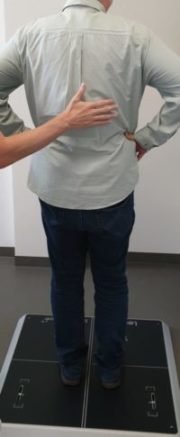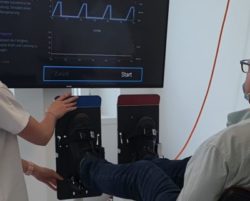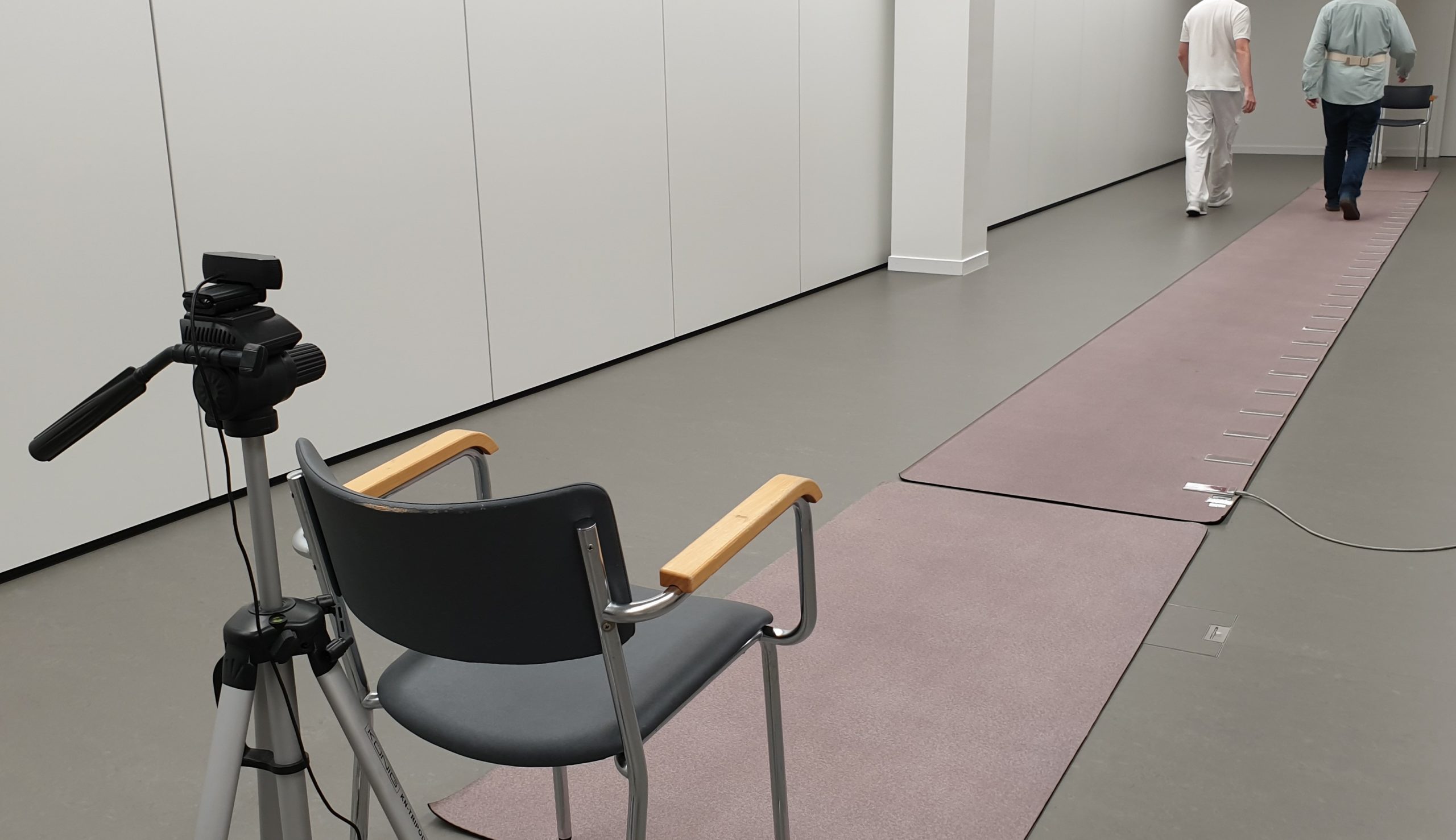 Recovery of mobility function and life-space mobility after ischemic stroke (MOBITEC-Stroke)
Recovery of mobility function and life-space mobility after ischemic stroke (MOBITEC-Stroke)
Background
Stroke often results in mobility limitations and subsequent need for assistance with activities of daily living. The risk of suffering a stroke increases with age. Due to demographic developments, an increase in the number of people affected by strokes is therefore to be expected in the future.
Objective
The main objective of MOBITEC-Stroke is to characterize changes in the mobility of patients in the first year after a stroke.
Methods
Functional mobility – with the help of laboratory measurements – as well as spatial mobility – with the help of GPS measurements and map-based assessments – are recorded four times during the first year after stroke.
Outlook
The detailed knowledge of different recovery trajectories should enable the individualized planning of rehabilitation measures and the targeted application of therapies in the future.
Project lead
PD Dr. Timo Hinrichs (Principal Investigator; Department of Sport, Exercise and Health, University of Basel)
Prof. Dr. Nils Peters (Co-Principal Investigator; University Center for Medicine of Aging FELIX PLATTER, Basel; Department of Neurology & Stroke Center, University Hospital Basel; Stroke Center Klinik Hirslanden Zurich)
Project coordination
PD Dr. Roland Rössler (Department of Sport, Exercise and Health, University of Basel)
Project partners
Dr. Stephanie Bridenbaugh (University Center for Medicine of Aging FELIX PLATTER, Basel)
Prof. Dr. Stefan Engelter (University Center for Medicine of Aging FELIX PLATTER, Basel; Department of Neurology & Stroke Center, University Hospital Basel)
Dr. Denis Infanger (Department of Sport, Exercise and Health, University of Basel)
Prof. Dr. Erja Portegijs (Human Movement Sciences, University of Groningen, The Netherlands)
Prof. Dr. Arno Schmidt-Trucksäss (Department of Sport, Exercise and Health, University of Basel)
Prof. Dr. Taina Rantanen (Faculty of Sport and Health Sciences & Gerontology Research Center, University of Jyväskylä, Finland)
Prof. Dr. Robert Weibel (Department of Geography, Geographic Information Systems Unit, University of Zurich)
Funding
Swiss National Science Foundation (SNF, Project No. 182681)
Duration
2019-2022
Publications
Hinrichs T, Rössler R, Infanger D, Weibel R, Schär J, Peters EM, Portegijs E, Rantanen T, Schmidt-Trucksäss A, Engelter ST, Peters, N: Self-reported life-space mobility in the first year after ischemic stroke: longitudinal findings from the MOBITEC-Stroke project. J Neurol 2023, 270(8):3992-4003.
Rössler R, Rommers N, Kim EK, Iendra L, Sofios A, Giannouli E, Portegijs E, Rantanen T, Infanger D, Bridenbaugh S, Engelter ST, Schmidt-Trucksäss, A, Weibel R, Peters, N, Hinrichs, T: Timed up-and-go performance is associated with objectively measured life space in patients 3 months after ischemic stroke: a cross-sectional observational study. J Neurol 2023, 270(4):1999-2009.
Rössler R, Bridenbaugh SA, Engelter ST, Weibel R, Infanger D, Giannouli E, Sofios A, Iendra L, Portegijs E, Rantanen T, Streese L, Hanssen H, Roth R, Schmidt-Trucksäss A, Peters N, Hinrichs T: Recovery of mobility function and life-space mobility after ischemic stroke: the MOBITEC-Stroke study protocol. BMC Neurol 2020, 20(1):348.
Ryan M, Rössler R, Rommers N, Iendra L, Peters EM, Kressig RW, Schmidt-Trucksass A, Engelter ST, Peters N, Hinrichs T: Lower extremity physical function and quality of life in patients with stroke: a longitudinal cohort study. Qual Life Res 2024, DOI: 10.1007/s11136-024-03713-0 [online first]
